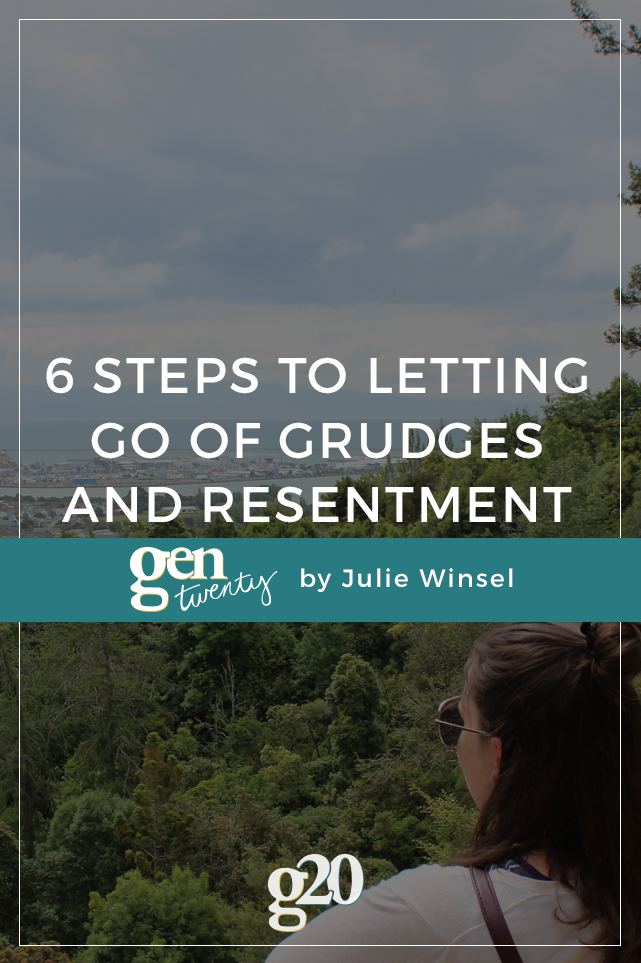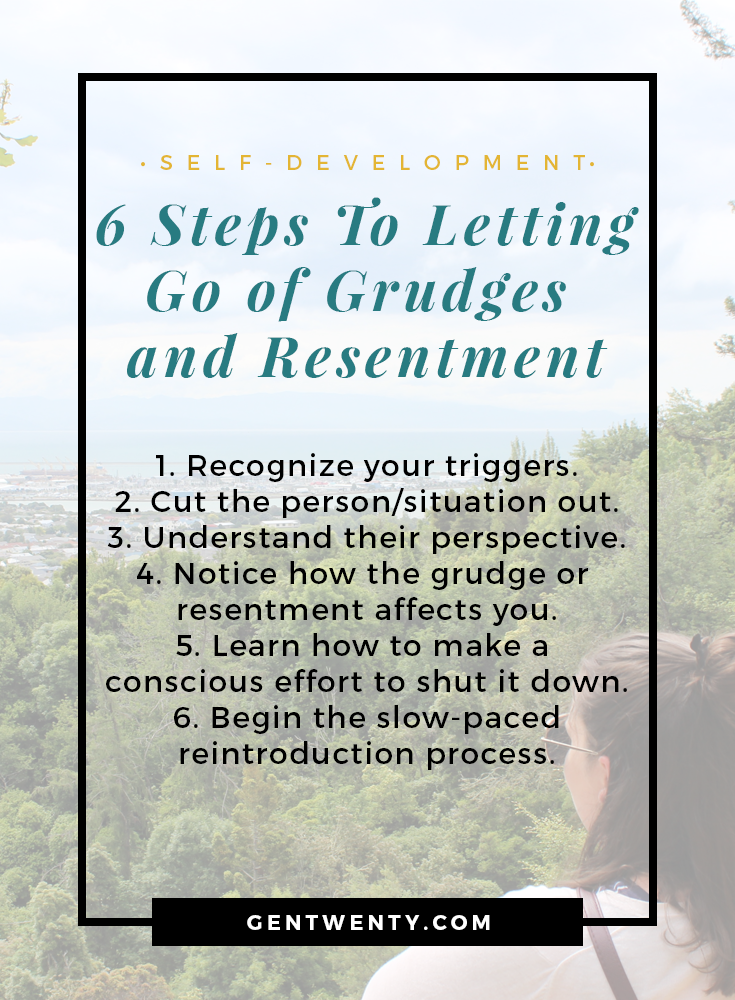Note: Resentment and holding grudges are much different than the effects of abuse and trauma, or symptoms associated with PTSD. If you want help from triggers and events associated with abuse or are experiencing symptoms associated with PTSD, please seek professional guidance.

Logic and emotion are at constant odds in a human brain. We know what the right, reasonable thing is and most of the time it’s easy to follow that.
Logically, I should eat when I’m hungry. I should shower and work out and take care of my body.
Emotionally, however, we can convince ourselves of the opposite. I’m bored so I’m going to eat. I could shower but my game of Tetris is much more interesting. I should work out, but then I’d have to exert energy.
In our interactions with others, logic should be the better choice of action. But often our emotions get in the way, kicking in out of anger, embarrassment, fear, or other negative emotions that can cloud experiences. When both parties’ emotions get in the way, confrontation can occur, sometimes at such a level that both are impacted.
These emotional, negative confrontations can lead to grudges and resentment, which can stick with us until we consciously let them go.
Resentment is a powerful force and can severely affect our relationship with not only the person involved in the resentment, but others as well. It can show up in our prejudices and our defense mechanisms.
However, although it may seem like resentment involves all parties, it is actually a personal choice that we make.
The thing is, whatever it was that caused the resentment, be it a specific event or a series of events over time, has happened. It’s likely that the other person involved has moved on or had no idea of the effect it had on your or your relationship with them.
I know I have resentment about things in my life. There are things I need to address, but I need to address them with myself, not with the people involved, mostly because my time to address them with the people has long-since passed and impossible.
These things have impacted me: they crowd my thoughts, they cause me anxiety to think about, and I reenact the scenes over and over in my head. I am putting myself in mental turmoil because I still am holding that resentment.
And it only affects me at this point. I am still letting those events control me and that is not okay, nor is it good for my mental health. I try not to hold grudges because at some point — at this point — I am the only one suffering.
Addressing and moving on from a grudge or resentment are not as simple as the old “forgive and forget” method. That’s a naive statement and dismisses the emotional and mental impact of events that can lead to resentment.
[clickToTweet tweet=”Addressing and moving on from a grudge or resentment are not as simple as the old “forgive and forget” method.” quote=”Addressing and moving on from a grudge or resentment are not as simple as the old “forgive and forget” method.”]
Rather, pushing through and past resentment takes a few steps:
- Recognize your triggers: What angers you? Is it the person or people directly involved? Is it what they did? What they said? Are you triggered by similar people or occurrences? Knowing what spikes your feelings of resentment and what specifically bothers you can help identify what needs to be addressed.
- Temporarily cut that person out of your life: If you haven’t already, you need to cut the toxicity out as much as you can. While this may be hard with family members or coworkers, do what you can to limit contact with them. By limiting your exposure, you’re not reinforcing the grudge by adding fuel to the fire with every interaction you have with them. Right now, you are biased against them and anything they say or do will be clouded by your feelings towards them, however harmless they may be. Until you have moved on from your grudge, you’ll be unable to have a healthy relationship with this person.
- Understand their perspective: Most of the time, things are not done out of malice. It’s not personal, it’s what their judgement lead them to believe was the right course of action at the time. Try to understand where they’re coming from and maybe even their own resentments or prejudices. We all bring different things to the table and sometimes those things don’t taste good to anyone. Completely understanding the circumstances will shed some light on both sides.
- Notice how the grudge affects you: Is your anger piqued after seeing them and it throws you off your game for the rest of the day? Do you think about what happened regularly and occupies your time excessively? Do you find yourself acting out scenes with this person of what you would say if you got the chance to tell them off? These obviously mean that there is still hurt there, but now that hurt is affecting you deeply. This now goes beyond being peeved with someone, which will be cured after you sleep it off. And notice how it impacts your relationship with others: Does your anger manifest itself in anger towards others? Has the grudge taken over so much that you can’t focus on your current conversations and events in your life? Time to address that, buddy.
- Make a conscious effort to shut down the grudge spiral before it starts: The second your brain starts to reenact anything that person has said or done, shut it down. Tell your brain, “No, we’re not dwelling on this anymore.” I’m not talking about repression here; you still need to be honest about the hurt you’ve felt. But stop yourself when you start thinking of things you should’ve said or would say given the chance. Because you won’t have that chance. Shut down the what-ifs. They’re dangerous. This step will take a lot of time and will be a constant process.
- If you feel comfortable (or it’s necessary), slowly start to reintroduce the person into your life: Build new experiences with them to replace the bad. It’ll be hard not to have a wall up, or at least have the brick and cement in your hands, but try to have an open mind in your new interactions with them. If they aren’t in your life at all anymore, kill any lasting grudge with new experiences and new people. Replace the resentment with positivity.

Grudges and resentment can take over and cause even more damage if left to fester. Logic and emotion are highly competitive forces. Unfortunately, emotion usually wins. By consciously addressing our grudges and resentments, we can move beyond them.
